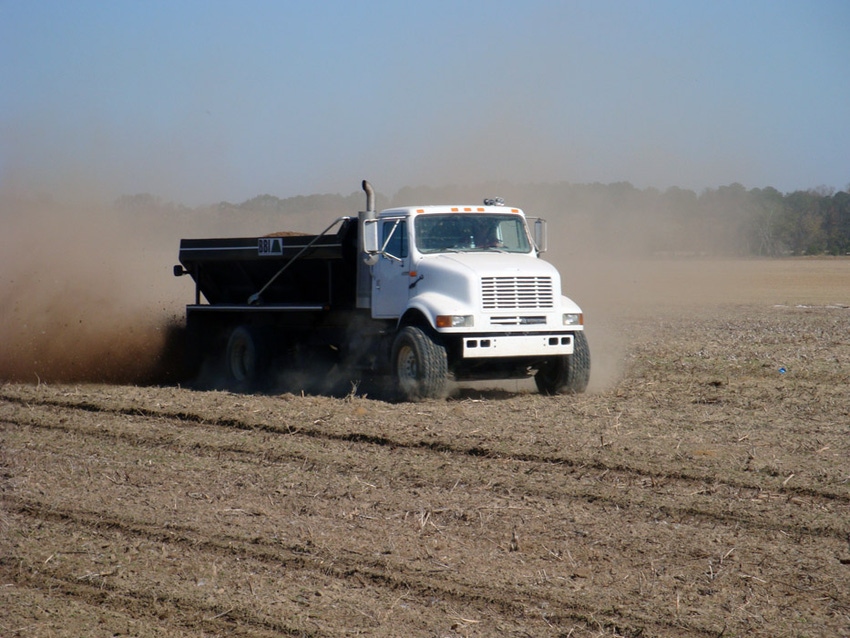
A few quick tips on using poultry litter
Not all nutrients in poultry litter are available to plants; about 60 percent of the nitrogen is available, 80-100 percent of the phosphate is available, but 100 percent of the potassium is available.If storing animal manure, remember “out of sight is out of mind.”

About 10 million tons of poultry litter is generated annually in the U.S. Georgia, being the top poultry state, provides about 20 to 25 percent of it. It’s most common use is for land application or fertilizer for crops and pastures, but farmers need to handle right.
Poultry litter’s fertilizer value runs more than $80 per ton, according to a 2011 University of Georgia survey and study about the use of poultry litter among south Georgia crop producers.
In general, poultry litter is about a 3-3-2-grade fertilizer, meaning per ton it has between 40 and 60 pounds of nitrogen, 50 and 70 pounds of phosphorous and 45 to 55 pounds of potassium. Not all nutrients in poultry litter are available to plants; about 60 percent of the nitrogen is available, 80 to 100 percent of the phosphate is available, but 100 percent of the potassium is available. How much can you expect out of your litter?
You can check current crop commodity prices now
“It is important that producers utilizing poultry litter be informed or reminded of associated responsibilities of using this resource,” says Melony L. Wilson-Cowart, a UGA animal waste specialist.
Wilson-Cowart gives a few things to remember when handling poultry litter:
The best advice I can give anyone using animal manure is, if storage is required, “out of sight, out of mind” is the best philosophy. No visual stockpiles results in less likelihood of complaining or reporting to state or federal agencies.
On the regulatory side, it is very important to know that it is illegal in the state of Georgia to have any animal manure stored outside uncovered…PERIOD. There is not a time limit associated with this rule, as soon as it is pile outdoors it must be covered to be legal.
Georgia Department of Agriculture uses the Animal Manure Handler Rule to enforce covering of litter stockpiles.
Any liquid discharge from manure stored outside is considered a “point source” of pollution and is required to be permitted. So all fines and penalties associated with that discharge plus not having the required permit for that discharge applies.
Also, properly stored poultry litter won’t bring weed seeds to the party when it is applied to fields. But, if poultry litter is stored outside uncovered, birds or other things can deliver weed seeds to the pile. And with the added nutrients from the litter, the weeds can grow fast, especially in pastures.
About the Author(s)
You May Also Like





